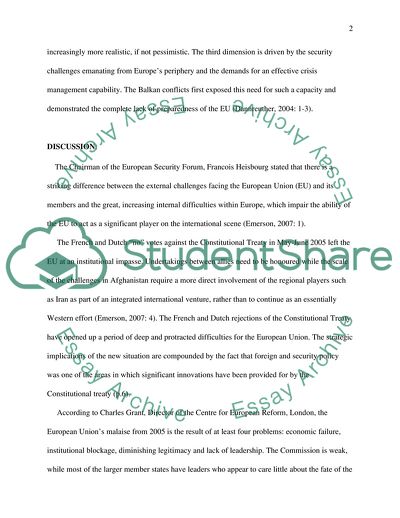Cite this document
(The European Unions Neighborhood Policy - to What Extent It Aims to S Case Study, n.d.)
The European Unions Neighborhood Policy - to What Extent It Aims to S Case Study. https://studentshare.org/politics/1708219-to-what-extent-is-the-aim-of-the-eus-neighbourhood-policy-merely-to-secure-the-stability-and-security-of-the-eu-itself
The European Unions Neighborhood Policy - to What Extent It Aims to S Case Study. https://studentshare.org/politics/1708219-to-what-extent-is-the-aim-of-the-eus-neighbourhood-policy-merely-to-secure-the-stability-and-security-of-the-eu-itself
(The European Unions Neighborhood Policy - to What Extent It Aims to S Case Study)
The European Unions Neighborhood Policy - to What Extent It Aims to S Case Study. https://studentshare.org/politics/1708219-to-what-extent-is-the-aim-of-the-eus-neighbourhood-policy-merely-to-secure-the-stability-and-security-of-the-eu-itself.
The European Unions Neighborhood Policy - to What Extent It Aims to S Case Study. https://studentshare.org/politics/1708219-to-what-extent-is-the-aim-of-the-eus-neighbourhood-policy-merely-to-secure-the-stability-and-security-of-the-eu-itself.
“The European Unions Neighborhood Policy - to What Extent It Aims to S Case Study”. https://studentshare.org/politics/1708219-to-what-extent-is-the-aim-of-the-eus-neighbourhood-policy-merely-to-secure-the-stability-and-security-of-the-eu-itself.


